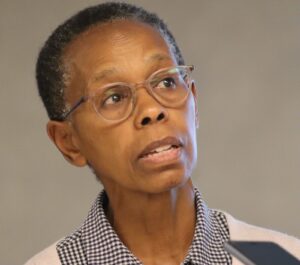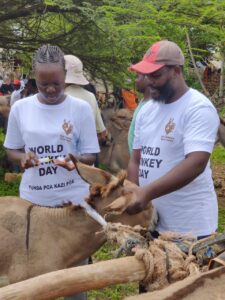The Kenya Tourism Board (KTB) is positioning Kenya as a year-round festival destination as countries line up cultural events to attract visitation to their regions.
KTB Acting CEO John Chirchir says festivals have helped open up tourism circuits and spurred growth in the hospitality sector, while at the same time positioning culture and heritage as drivers of tourism growth in the country.
‘’The benefits of having cultural festivals in our counties are immense to the tourism sector value chain, for we expect hotels and facilities to record full bookings during these festivals. Additionally, businesses that are supported by tourism will benefit from the many visitors we expect at the events” said Chirchir.
Chirchir spoke as Samburu Governor Johnathan Lelelit announced the 30th edition of the International Maralal Camel Derby set for the 5th to 8th of October which is set to attract both local and international participation.
The governor announced that improved infrastructure and security in the region was a major catalyst to such events and other development opportunities in the region.
“It is worth noting that this is the first camel derby we are hosting with a fully tarmacked road from Mararal to Nairobi in many years. This infrastructure improvement has significantly reduced travel time, making the journey from Nairobi to Mararal now taking only four to five hours, compared to the previous longer travel times. Additionally, the security measures put in place are exceptional, allowing attendees to feel safe whether they choose to explore the area during the day or enjoy the festivities at night” said the Governor.
He disclosed that over the four days of the camel derby, all eateries, hotels, and lodges within the conservancies are fully booked, reflecting the popularity and success of the event.
“In terms of nationalities, he added, we have representation from all over the world, including the United States, Canada, and various Eastern European countries. Interestingly, the numbers from Asia have been steadily increasing in terms of attendance, adding to the international flavor of the event” said Governor Lelelit.
Counties have lined up cultural festivals as one of the ways of encouraging visitation to their region, a phenomenon billed as one way of impacting economic livelihoods at the grassroots level.
Recently Kajiado County hosted the inaugural Maa cultural festivals that brought together Maa-speaking counties besides other over 10,000 participants across the country. Other festivals held recently included Tharaka Nithi Cultural festivals.
Now in its 31st edition, the camel derby will showcase camel racing and other activities that are central to the Samburu culture. The Turkana Cultural Festival will be held in Lodwar, Turkana County as from 12th to 14th October. The festival, popularly known as “Tobong’u Lore” (welcome back home), was first held in 2014 and is hosted by a number of indigenous communities adjacent to the lake, with the aim of promoting peace, cultural exchange, and tourism.
“In Kenya, festivals and cultural events are a critical component of the tourist experience, particularly for the emerging segment of young tourists, who are looking for authentic experiences. They have become an integral part of the Kenyan tourism calendar and key drivers for economic growth in the hosting destination,” said Chirchir.
Chirchir also cited the upcoming festivals as examples of tourism offerings that will be able to open new destinations and circuits that are not well served by conventional tourist products.
“The Turkana Cultural Festival, for instance, is one of the biggest festivals in the region drawing thousands of visitors to Northern Kenya. This annual event offers an opportunity for tourists to explore the host town, which is widely considered the cradle of humankind and has contributed immensely to the knowledge of human evolution through its numerous archaeological and paleontological discoveries. We shall continue to work with counties to develop festivals strategically as unique experiences that will open up new circuits.,” he added.
The United Nations World Tourism Organization (UNWTO) has recognized the role of culture as a driver of tourism growth, especially for destination development, positioning, diversification, competitiveness, sustainability, and recognition at the international level.





